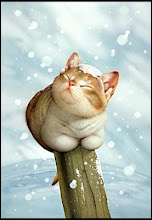Mdm Kuek, 70y, c/o inability to delay voiding and dribbling of urine whenever she coughs or sneezes too forcefully. She seldom leaves her home because she feels to embarassed to wet herself in public. During a check up, she consults the continence nurse.
(a) List the transient causes of Urinary Incontinence
(b) Briefly discuss the general urinary assessemnt for Mdm Kuek
(c) State the specific nursing management if UI the nurse clinician would render Mdm Kuek
(a) Transient causes of UI would include:
D - Delirium (acute confusional state)
I - Infection (increases urge)
A - Atropic Vaginitis (loss of suporting structures)
P - Pharmaceutical (eg. Lasix)
P - Pyschological (eg. Dementia)
E - Endocrine Disorders (eg. DM ->polyuria)
R - Restricted Mobility (eg. Amputation)
S - Stool Impaction (presses onto bladder)
***************************************
(b) General Assessment for UI include:
(1) Medical History
- Medical, Surgical, O&G -> any problems identified?
(2) Physical Assessment
- Esp Genitalia -> Note skin condition, presence of discharges, foul smell, prolapse?
- May indicate UTI
(3) Current Medication
- On any diuretics?
(4) Fluid Intake
- Amount and type consumed
- Identify possible diuretic properties some drink possess
(5) Urinary Habits
- Note the onset, duration, severity of UI
- Eg. Frequency, Nocturia, Dysuria, Urgency, Haematuria, Obstructive symptoms
(6) Bowel Habits
- Constipated? Impacted stools -> presses on bladder
(7) Psychological State
- Depression? Delirium?
(8) Functional State
- Immobility -> leak?
(9) Environmental Factor
- Lack of toilet facilities? Too far?
(10) Age related changes
- Weak pelvic floor muscles? Atropic Vaginitis?
(i) Assessment
- As abovementioned to exclude/determine factors contributing to UI
(ii) Plan
- Explain prior commencing interventions for cooperation and consent
(iii) Interventions
- Diagnostic Investigations
- Eg. In-Out catherization to measure Post Voided Residual (PVR) volume
- Post void bladder scan
- Blood Tests -> High WBC indicative of infection
- Urine C&S + FEME to exclude UTI
- MMSE to determine mental state - Bladder Chart/ I&O Chart
- Useful assessment tool to describe voiding pattern
- Provides enhanced self awareness of fluid intake and elimination pattern
- To record findigngs for at least 3 days
- Pt able to keep this record by themselves at home - Behavioural Techniques
- (a) Bladder Retraining
-> Helps pt to postpone voiding to a fixed schedule
->Requires pt to resist sensation of urgency to void
-> Recommended for STRESS & URGE incontinence
- (b) Habit Training
-> Involves matching toileting schedule to pt's own voiding habits
-> Freq, Vol, Patterns of continence & incontinence are adjusted according to pt's pattern
- (c) Timed/Scheduled Training
-> Includes techniques to trigger voiding
-> Eg. Suprapubic tapping, Stroking inner thigh, Running a tap
-> Recommeded for pt's who require assistance for toileting
-> Usually 2hr intervals
- (d) Prompted Voiding
-> Asked at regualr intervals to empty bladder
-> Form of positive reinforcement
-> Recommeded for pt's who can respond when prompted to void
- (e) Pelvic Floor Exercises
-> Improves tone of muscles which aupport bladder neck and urethra
-> 1st line treatment for STRESS & URGE incontinence
-> Must be practiced daily - Introduction to External Collection Devices
- Eg. "All-in-1 briefs", Continence pads/aids, urinals, commodes
- Affordable, easy to apply, ranges in sizes and varies according to absorbency
- Socially acceptable, discreet
- Minimal skin irritation - Skin Care
- Maintain perineum hygiene
- Ensure right continent aids used with proper application
- Cleanse skin well after leakage
- Change continence pads/diaper regularly - Diet & Fluid
- Adequate nutrition & Fluids
- Debunk myth that low fluid intake will help incontinence
-> Truth : Less fluid intake will result in concentrated urine, in turn irritate bladder wall and worsen incontinence
- Encourage at least 8 glasses of plain water unless contraindicated
- Limit drinks near bedtime
- Reduce consumption of stimulating beverages (ie. Tea with diuretic effect) - Environmental Modification + Physical Safety
- Convenient toilet location
- Addition of grab bars, good lighting, non slip tiles/footwear, velco pants
- Use of ambulating aids (eg. walking sticks) - Medication
- Use of medication to treat Incontinence
-(a) Urge :
-> Anticholinergics (eg Propantheline Bromide) acts on bladder wall
-> Tricyclic Antidepressants (eg. Imipramine Hydrochloride) acts on bladder muscles
-> Bladder Relaxants (eg. Oxybutymin Chloride) acts on bladder wall
- (b) Stress:
-> Alpha-adrenergic Agonists (eg. Ephedrine) act on bladder wall and urethra
-> Estrogen act on urethra - Address problems related to UI
- (a) Physical
-> Discomfort r/t dampness
-> Unpleasane odors
-> Skin rash/breakdown
-> Falls
-> Dehydration
-> Insomnia
- (b) Psycological
-> Loss of independence (req aid for voiding)
-> Fear of embarrassment
-> Depression -> Suicide
-> Loss of dignity
-> Withdrawal
-> Feeling of being a 'burden' to caregiver/family
-(c) Social
-> Reduced social interaction
-> Isolation r/t embarassment/smell
-(d) Sexual
-> Avoidance of sexual contact r/t smell etc
- (e) Occupational/Financial
-> Unemployment r/t absence from work
-> Change of job
->Money spent on treatment
-> Refer to MSW/Psy/Skills traininf options - Catherization & Surgery
- For serious cases

